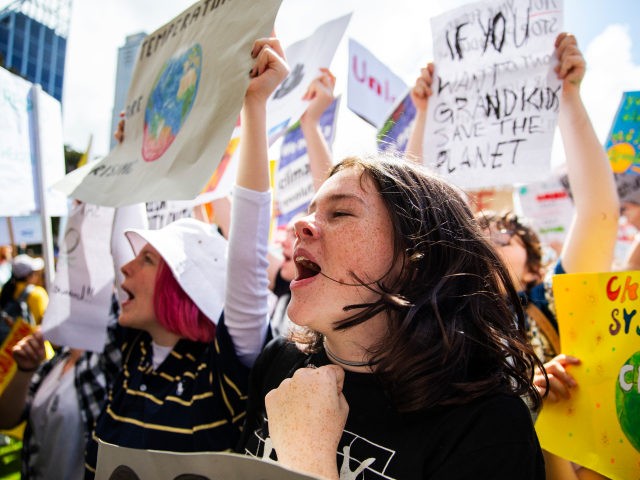A group of climate researchers warned this week that billions of people could find themselves in uninhabitable conditions by the year 2100 thanks to climate change.
“By the end of this century, an estimated 3 to 6 billion individuals — approximately one-third to one-half of the global population — might find themselves confined beyond the livable region, encountering severe heat, limited food availability, and elevated mortality rates because of the effects of climate change,” the authors wrote in their “2023 state of the climate report” published in BioScience.
The researchers, led by Oregon-based climate activists William J. Ripple and Christopher Wolf, stated that the effects of global warming “are progressively more severe, and possibilities such as a worldwide societal breakdown are feasible and dangerously underexplored.”
“Big problems need big solutions,” the authors declared. “Therefore, we must shift our perspective on the climate emergency from being just an isolated environmental issue to a systemic, existential threat.”
SMILE FOR THE CAMERA! Greta Thunberg Arrested at Fossil Fuel Conference Protest
The paper decries the “overexploitation” of our planet and challenges “the prevailing notion of endless growth and overconsumption by rich countries and individuals as unsustainable and unjust.”
It advocates “reducing resource overconsumption; reducing, reusing, and recycling waste in a more circular economy” while also calling for “climate justice and fair distribution of the costs and benefits of climate action, particularly for vulnerable communities.”
Predictably, the authors also call for population control, in an effort “to stabilize and gradually decrease the human population with gender justice through voluntary family planning and by supporting women’s and girls’ education and rights, which reduces fertility rates and raises the standard of living.”
The paper blames recent “major extreme weather events and disasters” at least in part to climate change, insisting that “climate extremes are threatening wider areas that have not typically been prone to such extremes” such as northern China, northern India, the United States, and Libya.
Fortunately, in the midst of the apocalyptic fearmongering of West Coast alarmists, sober voices from the scientific community are also growing stronger.
This summer, a group of more than 1,600 eminent scientists, including two Nobel Prize winners, issued the “World Climate Declaration,” in which they stated outright: “There is no climate emergency.”

File/British police officers remove an activist from Waterloo Bridge during an environmental protest by the Extinction Rebellion group, in London on April 16, 2019.(DANIEL LEAL-OLIVAS/AFP/Getty)
“Climate science has degenerated into a discussion based on beliefs, not on sound self-critical science,” the scholars asserted, enumerating a number of reasons for their criticisms.
Among other things, the Declaration states that climate models have proven inadequate for predicting global warming, that carbon dioxide (CO2) is not a pollutant, and that climate change has not increased natural disasters.
“The geological archive reveals that Earth’s climate has varied as long as the planet has existed, with natural cold and warm phases,” the Declaration notes. “The Little Ice Age ended as recently as 1850. Therefore, it is no surprise that we now are experiencing a period of warming.”
Climate Week Launches with NYC March Demanding End to Fossil Fuels
Moreover, the world has warmed “significantly less than predicted by IPCC on the basis of modeled anthropogenic forcing,” the text states, and the gap between the real world and the modeled world “tells us that we are far from understanding climate change.”
“There is no statistical evidence that global warming is intensifying hurricanes, floods, droughts and suchlike natural disasters, or making them more frequent,” it argues, whereas there is ample evidence “that CO2-mitigation measures are as damaging as they are costly.”
Since there is no climate emergency, there is “no cause for panic and alarm,” the document contends. “We strongly oppose the harmful and unrealistic net-zero CO2 policy proposed for 2050.”

COMMENTS
Please let us know if you're having issues with commenting.